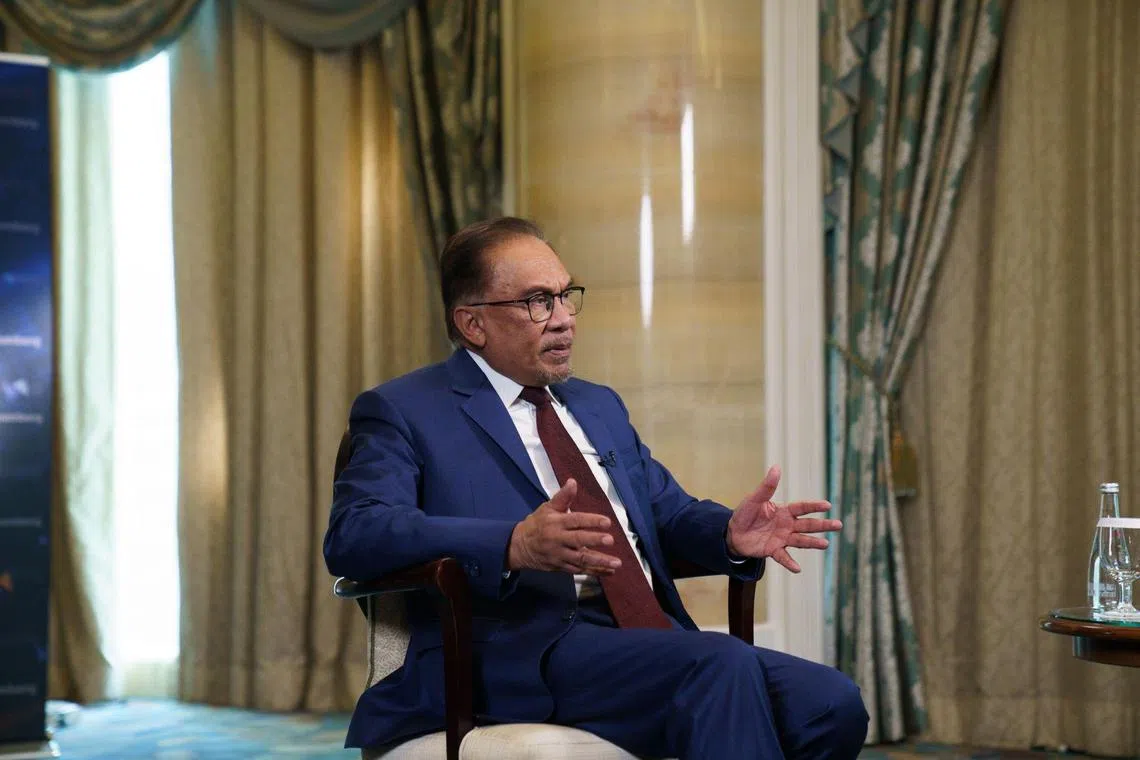Malaysia PM Anwar vows gradual debt reduction to ensure stability
Sign up now: Get insights on the biggest stories in Malaysia

Malaysian PM Anwar Ibrahim has made protecting low- and middle-income groups from rising prices the top priority of his administration.
PHOTO: BLOOMBERG
Follow topic:
SINGAPORE – Malaysia’s Prime Minister Anwar Ibrahim said his government will work to gradually lower the nation’s debt and narrow the budget gap, without resorting to raising taxes that hurt the poor.
“We have reached the ceiling, and we should gradually go down,” Datuk Seri Anwar said in a Bloomberg Television interview on Monday in Singapore. Otherwise it would be irresponsible to the next generation, he said.
Malaysia had raised the debt limit to 60 per cent of gross domestic product (GDP) from 55 per cent in 2020 in the early days of the pandemic, and lifted it further to 65 per cent in 2021 to make room for additional borrowings to fund fiscal stimulus. Malaysia’s actual debt is at 61 per cent of GDP, and the law under which the ceiling was raised lapsed on Dec 31.
While Malaysia remains A-rated by credit agencies Moody’s Investors Service and S&P Global Ratings, a reduction in government debt ratio will be key to winning a higher credit score from Fitch Ratings, which is currently the only one of the three main rating companies to have a lower BBB+ rating on the South-east Asian nation.
Mr Anwar, who doubles as Finance Minister, is set to table the revised 2023 Budget to Parliament on Feb 24
While he acknowledged that the goods and services tax remains the most transparent and efficient taxation system, he said his government is not in a hurry to reinstate the tax that was abolished in 2018.
“I have a huge issue of having to introduce taxation policies or new initiatives when it affects the plight” of the low-income group, he said.
He said Malaysia is fortunate that the revenue from taxes has increased slightly, along with petroleum products.
Malaysia, which runs South-east Asia’s widest fiscal deficit after the Philippines, has seen its Budget strained by the cost of keeping essentials at below-market prices. Government subsidies were forecast to reach a record RM80 billion (S$25 billion) in 2022, with concessions on fuels and cooking gas alone projected to account for about half the amount.
In December, the government said it would raise electricity prices for multinational companies and heavy users,
Earlier in January, Mr Anwar had warned that 2023’s fiscal position will not be comfortable,

